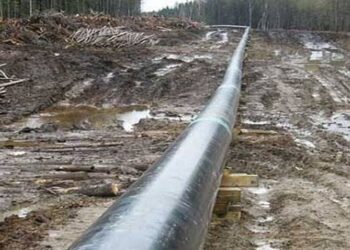Niger has shut off the taps feeding a pipeline that carries its oil to Benin for export, escalating diplomatic tensions between the two countries. This development follows strained relations due to a coup in Niger last year, which has made the Benin port of Seme-Kpodji—a critical export point for Niger’s oil—a significant flashpoint.
Despite regional sanctions imposed on Niger after the coup, which led Benin to close its border, Benin has since reopened it. However, Niger’s military rulers have kept their side closed.
Last week, Benin announced on national television that it was lifting a “blockade” on Nigerien oil. However, Nigerien public broadcaster Tele Sahel reported that Oil Minister Mahamane Moustapha Barke recently visited the country’s east to ensure “the implementation of the instructions of the head of state, General Abdourahamane Tiani, relating to the total closure of the valves of crude oil destined for export” via Benin.

The broadcaster stated that one station’s valves had been closed since June 6, and others were ordered shut by the minister, with chains and padlocks installed.
“Whatever it will cost us, we are ready to bear it,” Barke told Nigerien officials and Chinese partners at the stations.
The oil pipeline is vital to the economies of both Niger and Benin, as well as to the Chinese company Wapco, which operates the pipeline. Last week, five Nigeriens were arrested at the Seme-Kpodji port, with Benin authorities accusing at least two of them of being “agents” of the Nigerien junta posing as Wapco employees. Niger denies these accusations.
Barke stated that General Tiani had ordered the shutdown of one pumping station if the five individuals were not released.
Why It Matters
The shutdown of the oil pipeline is not just a bilateral issue between Niger and Benin; it has broader economic and geopolitical implications. The oil transported through this pipeline is crucial for the economies of both countries and the operations of Wapco, a significant Chinese company. The continued closure could lead to substantial economic losses and exacerbate regional instability.
Bottom Line
The escalating diplomatic tensions between Niger and Benin, culminating in the shutdown of a vital oil pipeline, underscore the fragile nature of regional relations and the significant economic dependencies involved. Resolving this conflict is essential to prevent further economic fallout and maintain regional stability.

















